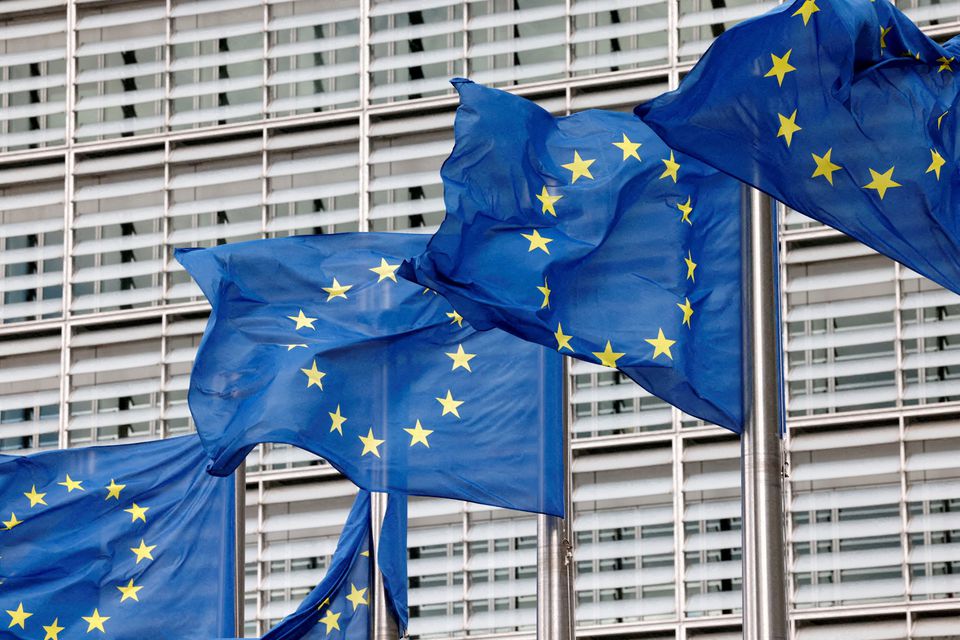BRUSSELS, March 23 (Reuters) – Germany and the European Union are on course to resolve a dispute over the bloc’s planned 2035 phaseout of CO2-emitting cars, EU leaders said at a summit in Brussels on Thursday.
Berlin’s last-minute opposition to one of Europe’s biggest climate change policies was not part of the official summit agenda, but has overshadowed the discussions.
“If I understand correctly the talks between the Commission and the German government… everything is on a good path,” German Chancellor Olaf Scholz said on his arrival to the summit.
Scholz did not specify when he expects a deal to be reached. Some leaders, such as Dutch Prime Minister Mark Rutte, and EU officials suggested it would be a matter of days.
“Negotiations are progressing. There is a will on both sides to resolve this topic,” EU Commission head Ursula von der Leyen told a news conference after the first day of the summit. “I am confident that soon we will find a good solution,” she said.
The EU law is expected to make it impossible to sell new combustion engine cars in the EU after 2035. Germany’s Transport Ministry wants assurances that new combustion engine cars can be sold beyond that date if they run on e-fuels – a request supported by parts of Germany’s powerful car industry.
Austrian Chancellor Karl Nehammer said a number of countries had been won round to e-fuels, saying they could reduce EU reliance on batteries and materials from China for electric vehicles.
“There’s a lot of agreement on this topic. France also supports this position now. For us, it’s an important signal,” he told reporters after Thursday’s session closed.
Last-minute opposition from Germany’s transport ministry came after EU countries and lawmakers had already agreed a deal last year to ban combustion engines.
The dispute has raised concerns among some EU officials that political deals on other major laws could unravel.
The Ministry and the European Commission, which drafts EU laws, are in talks. A draft EU Commission proposal, seen by Reuters this week, suggested allowing carmakers to register sales in a new type of vehicle category, for cars that can only run on carbon neutral fuels.











